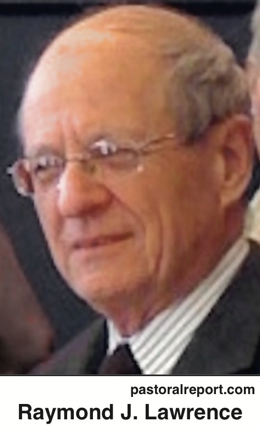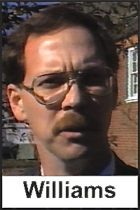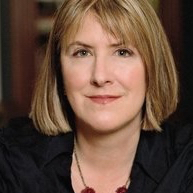Rascals case in brief
In the beginning, in 1989, more than 90 children at the Little Rascals Day Care Center in Edenton, North Carolina, accused a total of 20 adults with 429 instances of sexual abuse over a three-year period. It may have all begun with one parent’s complaint about punishment given her child.
Among the alleged perpetrators: the sheriff and mayor. But prosecutors would charge only Robin Byrum, Darlene Harris, Elizabeth “Betsy” Kelly, Robert “Bob” Kelly, Willard Scott Privott, Shelley Stone and Dawn Wilson – the Edenton 7.
Along with sodomy and beatings, allegations included a baby killed with a handgun, a child being hung upside down from a tree and being set on fire and countless other fantastic incidents involving spaceships, hot air balloons, pirate ships and trained sharks.
By the time prosecutors dropped the last charges in 1997, Little Rascals had become North Carolina’s longest and most costly criminal trial. Prosecutors kept defendants jailed in hopes at least one would turn against their supposed co-conspirators. Remarkably, none did. Another shameful record: Five defendants had to wait longer to face their accusers in court than anyone else in North Carolina history.
Between 1991 and 1997, Ofra Bikel produced three extraordinary episodes on the Little Rascals case for the PBS series “Frontline.” Although “Innocence Lost” did not deter prosecutors, it exposed their tactics and fostered nationwide skepticism and dismay.
With each passing year, the absurdity of the Little Rascals charges has become more obvious. But no admission of error has ever come from prosecutors, police, interviewers or parents. This site is devoted to the issues raised by this case.
On Facebook
Click for earlier Facebook posts archived on this site
Click to go to
Today’s random selection from the Little Rascals Day Care archives….
Click for earlier Facebook posts archived on this site
Click to go to
Today’s random selection from the Little Rascals Day Care archives….
After 20 years, plea to parents still unanswered
 April 11, 2014
April 11, 2014
“It may be hard for you to own the fact that you were duped by therapists and prosecutors, as well as misled by your own naivete about childhood sexuality. While it may be difficult now to acknowledge your five-year-long wrong, it will be far worse if your children have to do it for you, and far worse for you and your children to have history indict you as an unrepentant bearer of these terrible false accusations.
“A place for you in history is already assured. What history finally writes about you now depends on you….”
– From “An Open Letter to the Accusing Parents in the Little Rascals Child Abuse Case” by Raymond J. Lawrence in Contra Mundum (Oct. 1, 1993)
Will even one Edenton parent ever heed Lawrence’s call to “to undo this elaborate fabrication that has caused years of suffering to so many”? What would it take to remove the blinders, to accept responsibility and to separate yourself from the true believers?
Imagining my part of a chat with H.P. Williams Jr.
Dec. 9, 2011
 Had former district attorney H.P. Williams Jr. let our conversation drag on beyond 30 seconds on Wednesday, here are some questions I might have asked:
Had former district attorney H.P. Williams Jr. let our conversation drag on beyond 30 seconds on Wednesday, here are some questions I might have asked:
– In all the day care cases of the ʼ80s and early ʼ90s – Little Rascals, McMartin, Fells Acres, Wee Care, ad nauseam – why was not one instance of sexual abuse ever witnessed by an adult?
– Why was not one piece of physical or medical evidence ever presented?
– Would you still argue at Bob Kellyʼs sentencing hearing that “There is no reason he should be restored to the community at any time”?
– Have you been surprised that, since being freed, not one of the defendants has returned to a life of serial child sexual abuse?
– What would it take for you to admit the Edenton Seven were innocent?
● ● ●
If H.P. Williams Jr. – or any other reader – would like to respond, he is always welcome to do so here.
Why we want to forget the panic ever happened….

npr.org
Margaret Talbot
July 15, 2016
“When you once believed something that now strikes you as absurd, even unhinged, it can be almost impossible to summon that feeling of credulity again. Maybe that is why it is easier for most of us to forget, rather than to try and explain, the Satanic-abuse scare that gripped this country in the early ’80s – the myth that Devil-worshipers had set up shop in our day-care centers, where their clever adepts were raping and sodomizing children, practicing ritual sacrifice, shedding their clothes, drinking blood and eating feces, all unnoticed by parents, neighbors and the authorities….”
– From “The Devil in The Nursery” by Margaret Talbot in The New York Times (Jan. 7, 2001)
![]()
Children ‘defend veracity of implanted memories’
Sept. 27, 2013
“The children are the big victims (in unfounded sex abuse cases) and are sacrificed…. Can you imagine being a child and being interrogated, being sent to the gynecologist, seeing your mother cry, seeing your father getting into fights, or a person you really like being sent to prison? You actually end up believing that this happened to you, that’s what we called ‘added memory.’
“Those children grow up with the same memories as those who actually experienced child abuse. I found it disturbing and I felt that it had to be told.”
– From an interview with Thomas Vinterberg, director of “The Hunt,” at filmophelia.com (July 11, 2013)
Vinterberg’s sympathy for the children in such cases is well placed – but do they in fact “grow up with the same memories as those who actually experienced child abuse”?
Although reliable follow-up is scarce, Debra Poole, professor of psychology at Central Michigan University, had this to say about the unfounded claims of child witnesses in the Fells Acres (Amirault) case:
“It has nothing to do with lying and everything to do with the implanting of false memories…. Studies have shown that children will vehemently defend the veracity of implanted memories. They recall reporting them, and those reports produce mental images of the events that these individuals cannot distinguish from their real experiences. But the kids are not responsible for that. The interviews are.”
The Little Rascals child witness I talked with insists she continues to “remember vividly what happened.”











0 CommentsComment on Facebook